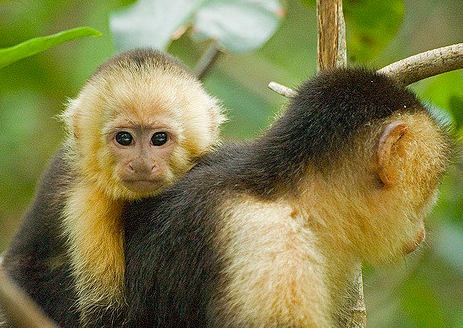New Scientist
Image: inottawa
Being too friendly can be costly. When a new alpha male takes over, female capuchin monkeys are more likely to lose their offspring to infanticide if they have an extensive network of social contacts than if they don’t.
This new finding suggests sociable primates don’t necessarily fare better than non-sociable ones when it comes to raising offspring.
Group-living mammals have plenty to gain from being sociable, says Urs Kalbitzer at the University of Calgary in Canada. They can have better access to food and more protection from predators, as they often take up a position near the centre of the group. These advantages should help the most sociable females raise more infants to adulthood.
But some researchers have suspected that being sociable carries a cost when the group’s alpha male loses his position to a rival. The usurper can kill offspring he hasn’t fathered so that adult females will become receptive to his sexual advances.
One idea is that the alpha male is more likely to kill the offspring of females at the group’s social core, as less sociable females on the periphery may escape his attention. To test the theory, a team led by Kalbitzer and his colleague Linda Fedigan looked at data from wild communities of white-faced capuchins (Cebus capucinus) in Santa Rosa, Costa Rica, between 2005 and 2011. Read more on newscientist.com…








